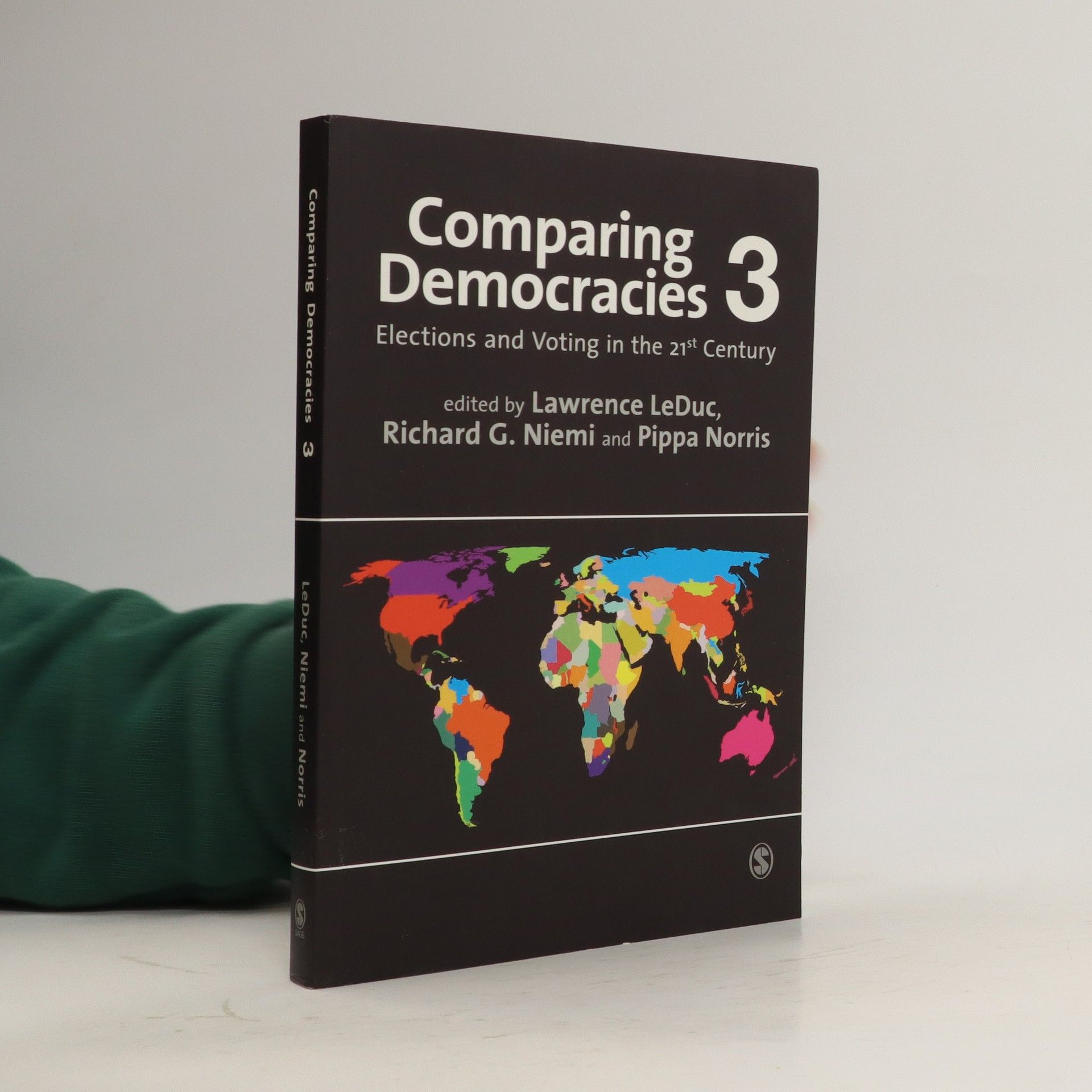Strange Things Are Happening
- 304 pages
- 11 hours of reading
A memoir by one of the most influential and ubiquitous underground British musicians of the past thirty years
Pippa Norris is an author whose work focuses on political science and social change. She examines the dynamics of democracy, civil society, and political culture across various nations. Her analyses often illuminate the complex relationships between institutions and citizen behavior. Through her research, she contributes to a deeper understanding of the challenges and opportunities facing modern societies.






A memoir by one of the most influential and ubiquitous underground British musicians of the past thirty years
Challenging conventional views, Pippa Norris explores the complexities of trust in societies, proposing a new four-fold typology that contrasts citizen trust with government competency, integrity, and impartiality. Utilizing data from the European and World Values Surveys across over 100 societies, she highlights the potential dangers of excessive trust in authorities, suggesting that the risks associated with blind faith are often overlooked. Norris's analysis invites a reevaluation of how trust is understood and its implications for governance.
A culture of trust is often seen as beneficial, enhancing markets, organizations, governance, and collective action. However, signs of eroding trust raise serious concerns. This book presents a nuanced view, highlighting that trust has two sides. For instance, belief in anti-vax theories has undermined herd immunity, while faith in Q-Anon has incited violence. Disasters arise from gullible acceptance of fake Covid-19 cures, Madoff schemes, and the false narrative denying President Biden's election. Trustworthiness relies on an informal social contract where principals expect agents to act competently and impartially despite risks. Skepticism is essential, as it reflects informed predictions about agents' future actions based on their past performance and safeguards against dishonesty. Unfortunately, assessments of trust are often flawed, with both cynical and credulous beliefs stemming from cultural biases and cognitive limitations. The conclusions are based on extensive data from the European Values Survey/World Values Survey, involving over 650,000 respondents across 100 societies over four decades. This work warns that excessive credulous trust can lead to significant, unrecognized risks in a world rife with manipulative demagogues, greedy swindlers, and conspiracy theorists exploiting our fears.
Authoritarian populist parties have advanced in many countries, and entered government in states as diverse as Austria, Italy, the Netherlands, Poland, and Switzerland. Even small parties can still shift the policy agenda, as demonstrated by UKIP's role in catalyzing Brexit. Drawing on new evidence, this book advances a general theory why the silent revolution in values triggered a backlash fuelling support for authoritarian-populist parties and leaders in the US and Europe. The conclusion highlights the dangers of this development and what could be done to mitigate the risks to liberal democracy.
The book explores the rise of radical right parties across various democracies, examining the underlying factors that contribute to their success. It analyzes political, social, and economic dynamics that enable these parties to gain traction and influence. By delving into case studies and trends, the author provides insights into the changing landscape of political ideologies and voter behavior, highlighting the implications for democratic governance and societal cohesion.
This book demonstrates that although advanced societies have been moving toward secular orientation, the world has more people with traditional religious views.
Civic Engagement, Information Poverty, and the Internet Worldwide
The book explores the growing divide between those who have access to information and those who do not, highlighting how the Internet may be intensifying these inequalities. It delves into the implications of this digital divide, examining the social, economic, and educational consequences for marginalized communities. Through critical analysis, the author presents potential solutions and calls for greater equity in information access to foster a more inclusive society.
Reflecting recent developments in the field, this timely new edition gives an indispensable state-of-the art review of the whole field from the world′s leading international scholars. With a completely new thematic introduction which explores how democracy is built and sustained, thoroughly updated chapters (many of which are also new) , the Third Edition provides a theoretical and comparative understanding of the major topics related to elections and introduces important work on key new areas.
Focusing on cosmopolitan communications, this book presents a novel theoretical framework that examines how global interactions can threaten cultural diversity. It explores the specific conditions that lead to these dangers, offering insights into the dynamics of communication in a globalized world.